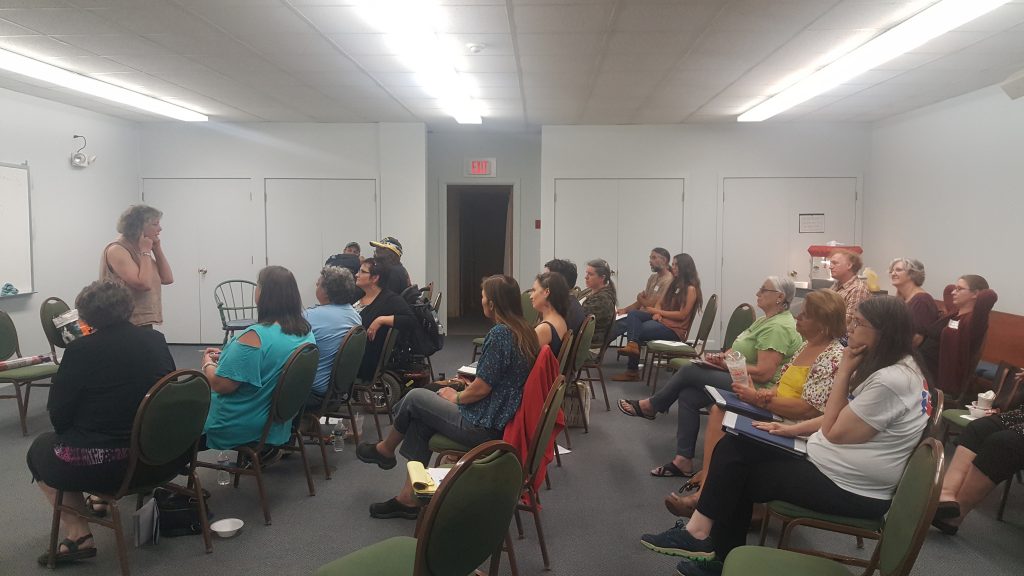 Let’s face it, we all deal with conflict at times, and some of us more often than others. Some conflict situations are more intense and dramatic than others, or at least we can perceive it that way. To help understand and deal with conflict, in hopes that I can help provide solutions when asked, I always turn a keen ear to those who offer perspective and solutions. If you are like me, you can likely spend an entire day thinking about a challenging conflict situation, thinking alone inside your own mind about what might be the best approach to resolve it. What if I told you that I learned something recently that might actually work? Something that was so useful that I cannot stop thinking about it and talking about it? If this excites you, read on!
Let’s face it, we all deal with conflict at times, and some of us more often than others. Some conflict situations are more intense and dramatic than others, or at least we can perceive it that way. To help understand and deal with conflict, in hopes that I can help provide solutions when asked, I always turn a keen ear to those who offer perspective and solutions. If you are like me, you can likely spend an entire day thinking about a challenging conflict situation, thinking alone inside your own mind about what might be the best approach to resolve it. What if I told you that I learned something recently that might actually work? Something that was so useful that I cannot stop thinking about it and talking about it? If this excites you, read on!
Here is how it all came about:
With support and guidance from the Cooperative Maine Business Alliance (CMBA), Sunset Terrace Cooperative, a resident owned manufactured housing community in Rockland, Maine, hosted and planned a training titled “Conflict in Your Cooperative”. Conflict seemed to be popping up weekly for this community. Although the Board of Directors had been working hard at becoming a successful resident owned community, the number of volunteers was dwindling and those who remained seemed burnt out due to rising conflicts and misunderstandings. Sound familiar?
CMBA connected us to a training organization that offered a training for conflict called Non-Violent Communication or NVC. The idea behind the title is that all conflict can result in violence. We may not identify it at first, but let’s face it, conflict can fester. Conflict can build and escalate. This organization provides this same training to individuals who are going through a re-entry program with the Maine State Prison system. A planning committee from Sunset Terrace worked with this organization to make sure that the training would have maximum impact and effectiveness for participants.
Thirty-five co-op members signed up for this event! Participants varied from housing, food, producer, and business co-ops. The participants first got to hear from a gentleman who had put this NVC practice to use in his own life. He told a story of a very troubled past growing up not being able to process emotions and turning to self harm and other coping mechanisms. These actions ultimately led him to a stay at the Maine State Prison. Upon re-entry he was introduced to this conflict training and was hesitant and skeptical but this process ultimately turned his life around. I do not think there was one person in the room who was not fascinated with this story of change. We were all listening intently.
The energy was high, the curiosity was peaked. We all tuned in to hear about how this NVC worked. I had anticipated that I would hear information about how to be a better listener and how to respond with kindness, but what we got was something totally new to me, and it was amazingly easy to apply. What we learned was that there is more to difficult conversations than just responding with direct blame or self blame. There are actually other options. We heard about the 4-chairs. These are the chairs we can choose to sit in when we are confronted with something challenging. I don’t want to give it all away- but chairs 3 and 4 are where we want to sit! Those are the chairs where we stop and think about what we and those we are confronted with are feeling and then consider the why. That might sound overwhelming or maybe even a bit silly, but the quick tips we learned were actually extremely practical and easy to put to use. In this two hour session we even had some time to break out in small groups to practice sitting in chairs 3 and 4.
Since this training event, we have received an overwhelming amount of positive feedback and many participants requesting more opportunities to continue learning more about this practice. CDI and CMBA are planning to provide more trainings and opportunities to learn more. In the meantime you can check out a really cool book that our storytelling friend wrote about his experience. It is titled “Only Human” and the author is Alton Lane. You can find it here on amazon.com. Alton also now co-facilitates the training at the Maine State Prison re-entry program as well as at other trainings on NVC around the State.
Looking for more information about future trainings and the CMBA? Head on over to www.maine.coop or find us on Facebook @ www.facebook.com/cooperativemaine
For more information about Non-Violent Communication training and Clarity Services, you can visit www.clarityservices.us
